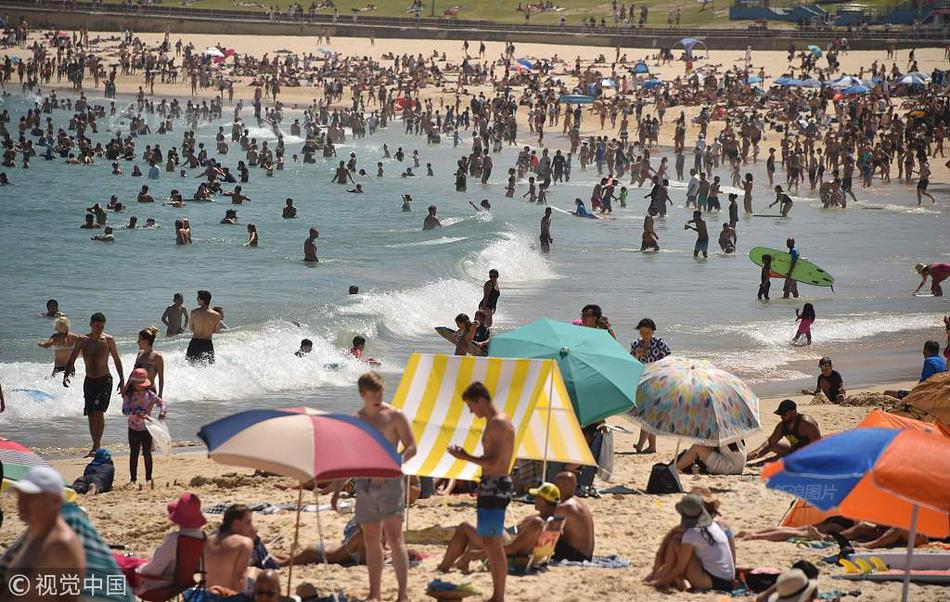9 Moonsocean isn't alright.
The seas, which hold some 332,519,000 cubic miles of water, are warming, rising, acidifying, and losing oxygen. And a new comprehensive U.N. climate special report, released Wednesday, presents an encyclopedic review of how Earth's oceans and ice sheets have been altered as the world relentlessly warms.
Over 100 scientists from 36 nations (who cited over 6,900 studies) wrote the stark dispatch, called the "Special Report on the Ocean and Cryosphere in a Changing Climate."
Today's disrupted seas, though, are just the inception of the ocean's transition. That's because the oceans are the true keeper of climate change: Most of the heat humanity traps on the planet gets soaked up by the ocean. And modern civilization won't stop saturating the atmosphere with heat-trapping carbon dioxide anytime soon.
"Over 90 percent of heat from global warming is warming the oceans," said Josh Willis, a NASA oceanographer who had no role in the U.N. report.
"Global warming is really ocean warming," Willis emphasized.
For anyone inhabiting the planet in the coming decades and centuries, this means increased sea level rise and warming, among other effects. The problem will get worse, but humanity still can limit the consequences, specifically by radically curbing carbon emissions.
"If we reduce emissions sharply, consequences for people and their livelihoods will still be challenging, but potentially more manageable for those who are most vulnerable," Hoesung Lee, chair of the U.N.'s Intergovernmental Panel on Climate Change (IPCC), said in a statement.
"Global warming is really ocean warming."
"Even with aggressive [carbon] mitigation efforts, we’re still going to have to deal with consequences of an ecosystem and an environment that has changed," noted Jeremy Mathis, a longtime Arctic researcher and a current board director at the National Academies of Sciences. Mathis had no involvement with the U.N. IPCC report.
(Reminder: Earth's atmospheric carbon dioxide emissions are now skyrocketing. CO2 levels haven't been this high in at least 800,000 years — though more likely millions of years. What's more, carbon levels are now rising at rates that are unprecedented in both the geologic and historic record.)
The report is exhaustive. But here are some of its many important takeaways:
The U.N. report concluded that sea level rise will continue for centuries. In a fairy tale world, wherein society can curb Earth's warming at 1.5 degrees Celsius (or 2.7 degrees Fahrenheit) above pre-Industrial Revolution temperatures (this scenario is now nearly impossible to achieve), sea levels will likely rise between one and two feet by the century's end, the report found.
But if emissions continue to increase at persistently high levels, the IPCC found sea levels would rise between nearly two feet and over three and a half feet (that's over a meter!). That's because Earth's most massive ice sheets, on Antarctica and Greenland, "are projected to lose mass at an increasing rate throughout the 21st century and beyond," the report said.
Even so, U.N. climate estimates are often conservative. Accelerated melting of the Greenland and Antarctic ice sheets — which are presently both experiencing accelerated melt— could boost sea levels significantly more than the report considers.
 Original image has been replaced. Credit: Mashable
Original image has been replaced. Credit: Mashable "I don't think there’s any science that rules out two meters by 2100," said NASA's Willis. "I think most people who study Greenland and Antarctica think [sea level rise] could be higher than current projections."
In large part, that's because warming oceans eat away at and melt the edges of glaciers, said Willis, noting that this is a significant effect Arctic and ocean researchers are just beginning to grasp.
And guess what? The oceans are certainly expected to keep warming. "Over the 21st century, the ocean is projected to transition to unprecedented conditions with increased temperatures" among other changes, the report concluded.
The IPCC report underscores that tropical cyclones, which include hurricanes, are projected to grow increasingly severe, specifically with higher winds and extreme rainfall. That's because cyclones feed off warm ocean waters. Storms add to their girth by sucking up evaporated seawater and build stronger winds by converting water vapor into energy.
SEE ALSO: Hurricane Dorian photos illustrate havoc and destruction in the BahamasResearch has shown remarkably warm waters have outweighed other factors in allowing recent Atlantic storms to intensify into powerful cyclones.
But a cyclone doesn't need to pack intense winds to be devastating. Storms these days often carry more water, and warmer sea surface temperatures are the reason why.
 Original image has been replaced. Credit: Mashable
Original image has been replaced. Credit: Mashable "The oceans are much warmer than they were 50 years ago," said Mathis, who formerly served as the director of the National Oceanic and Atmospheric Administration (NOAA) Arctic Research Program. He noted that warmer oceans evaporate more water vapor into the atmosphere, providing storms more fuel.
"Warmer oceans will drive extreme rainfall events," said Mathis, citing how Tropical Storm Imelda recently deluged the Texas coast. Imelda became one of the wettest cyclones in U.S. history. "That storm spun up [in intensity] in 12 hours," noted Mathis. "Suddenly the region got 42 inches of rain."
The special report focuses not just on the ocean, but on the planet's water everywhere — also known as the hydrosphere. This means glaciers atop Mt. Everest, ice sheets in Greenland, and ocean water thousands of feet beneath the surface.
"I think that the most important part of this work and message is that anthropogenic climate change is affecting all aspects of the hydrosphere, a key ingredient for life," said Jeremy Owens, a marine biogeochemist at Florida State University who had no involvement in the report.
Importantly, Earth's ice sheets and glaciers are "shrinking," the report underscored. Indeed, glaciers on every continent except Australia (which has no glaciers) are retreating, or dying. And critically, mountains are losing snowpack, which is vital for providing people with water (via snowmelt) during the warm or dry season.
SEE ALSO: Greta Thunberg shames apathetic grown-ups at U.N. Climate Action Summit"Snow is good, but we've got less snow," Heidi Steltzer, a lead author of the IPCC report, said in a call with reporters.
The consequences of a warming ocean, though, will be many. Climate change, noted Owens, will affect water temperature (which has dramatic consequences for marine life), the ability of nutrients to disperse around the ocean, acidity in the oceans (as the oceans absorb CO2 from the air), and oxygen levels in the water — which sea creatures require for respiration.
The Arctic is the most disrupted place on Earth. That's because it has warmed more than twice as much as the rest of the globe. Consequently, the great blanket of sea ice that covers the vast Arctic Ocean is vanishing.
Just this week, Arctic sea ice dropped to its second-lowest level on record, which is over 2 million square kilometers below the average minimum ice extent during previous, cooler decades. "The rapid changes in the Arctic are some of the clearest indicators of anthropogenic climate change," Zack Labe, a climate scientist and Ph.D. candidate at the University of California, Irvine, told Mashable.
This Tweet is currently unavailable. It might be loading or has been removed.
The report found that if civilization stabilizes the climate at 1.5 degrees Celsius, the Arctic will continue to thin, but will likely become completely ice-free by the summer's end (in September) only about once every 100 years.
But if the planet warms to 2 degrees Celsius this century (or 3.6 degrees Fahrenheit), the Arctic will likely be ice-free in September once every three years. The planet has already warmed 1.1 degrees Celsius since the late 1800s. So 1.5 Celsius is fast approaching.
The research presented in this IPCC report is valuable, said Mathis from the National Academies of Sciences. But "you don't have to be a scientist anymore to see what's going on," he emphasized.
That's because the consequences of a relentlessly warming ocean and atmosphere are easily visible, to everyone.
Twice in the last three years, the gulf coast of Texas has had storm events that dropped over 40 inches of rain, Mathis noted, including the largest rain event in U.S. history.
And with Tropical Storm Imelda, Texas has now likely experienced five "500-year floods" (which should have a 1 in 500 chance of occurring in any given year) in the last five years.
This Tweet is currently unavailable. It might be loading or has been removed.
"That’s extraordinary, that's exceptional," said Mathis. "You don't have to be a scientist to know that’s not normal."
"Trust your own eyes," he added.
The warming, disrupted oceans are here. And with increased carbon emissions, they are expected to warm, rise, and continue rising. That's a rule of physics.
"We’re staring down the barrel of some big economic and environmental impacts that have already started," said NASA's Willis, noting sea level rise projections.
"All the projections show they are going to get a lot worse."
 Why I switched from Sling to YouTube TV
Why I switched from Sling to YouTube TV
 A new French bill could send influencers to jail
A new French bill could send influencers to jail
 Twitter replaces logo with doge as Musk seeks Dogecoin lawsuit dismissal
Twitter replaces logo with doge as Musk seeks Dogecoin lawsuit dismissal
![Creator job opportunities grew 7x in recent years [April 2025]](http://n.sinaimg.cn/front/492/w752h540/20190420/2t2W-hvvuiyn3402429.jpg) Creator job opportunities grew 7x in recent years [April 2025]
Creator job opportunities grew 7x in recent years [April 2025]
 'Wordle' today: Here's the answer, hints for April 4
'Wordle' today: Here's the answer, hints for April 4
 There's a community on Reddit where COVID
There's a community on Reddit where COVID
 Oil prices are negative and nobody is really sure what that means
Oil prices are negative and nobody is really sure what that means
![Creator job opportunities grew 7x in recent years [April 2025]](http://n.sinaimg.cn/news/transform/200/w600h400/20190107/YiCU-hrfcctn5514828.jpg) Creator job opportunities grew 7x in recent years [April 2025]
Creator job opportunities grew 7x in recent years [April 2025]
 'Yellowjackets' and 'The Last of Us' share 3 creepy details, cannibalism aside
'Yellowjackets' and 'The Last of Us' share 3 creepy details, cannibalism aside
 'Wordle' today: Here's the answer, hints for April 4
'Wordle' today: Here's the answer, hints for April 4
 BBC weatherman kills the channel's theme song on drums after delivering the forecast
BBC weatherman kills the channel's theme song on drums after delivering the forecast
 How to look at past images in Google Maps Street View
How to look at past images in Google Maps Street View
 'Thunderbolts*' mid
'Thunderbolts*' mid
 Oil prices are negative and nobody is really sure what that means
Oil prices are negative and nobody is really sure what that means
 'Quordle' today: See each 'Quordle' answer and hints for April 3
'Quordle' today: See each 'Quordle' answer and hints for April 3
 How to spot a fake Twitter profile
How to spot a fake Twitter profile
 Wordle today: The answer and hints for April 14, 2025
Wordle today: The answer and hints for April 14, 2025
 Expedia announces ChatGPT
Expedia announces ChatGPT
Why it matters that 'Younger' talked #MeTooUber is hard at work at offering more than one mode of transportation'Vampyr' video game reviewAmericans aren't sold on the idea of returning astronauts to the moon11 horror films to watch if you need a chaser for 'Hereditary'The best comedy podcasts for when you want to laughNotorious 'poo jogger' is the latest in a line of well, you'll seeIt's time for Facebook to admit that it's a media company6 people who might show up in the 'Game of Thrones' prequelWhite House says its federal agencies can’t keep track of their own dataWhat is the SpiderAnna Delvey's biggest con played out after she got arrestedFacebook launches gaming video hub in attempt to rival Twitch'Barry' Review: The best four hours of your weekendLOL, wait: The babies featured in Beyoncé and JayInstagram update lets you reE3 2018: 'Anthem' handsLG Q Stylus is a stylus'Stranger Things' books are coming to youLyft overhauls its app to emphasize shared rides OnePlus 6 photos, specs, and price leak early VR porn will never take off until it solves these 3 problems Read an exclusive excerpt of Markus Zusak's new novel 'Bridge of Clay' Harrison Ford crashed an interview with new Han Solo Alden Ehrenreich New Captain America meme wants to talk to you about your questionable life decisions Google just slashed the price on its massive storage plans with Google One upgrade 'Whack Butt rip jeans are the latest terrible jeans trend that we definitely never needed LaCroix bathing suits are here just in time for summer FCC traces 96 million spammy robocalls to one Florida man Dad jokes, ranked Michael Jordan's NBA career will be a Netflix 10 NES Classics are coming back to stores in June That Prince Harry and Meghan Markle Lifetime movie has landed, people Yanny or Laurel? According to Google, it's Laurel. WhatsApp update makes group messaging more like Slack 5 times Boston Dynamics robots scared the sh*t out of us Donald Trump tweets support for ZTE and now everyone's confused Tim Cook remembers Steve Jobs in heartfelt commencement speech Emilia Clarke says she was always paid equally on 'Game of Thrones'
1.4589s , 10180.9140625 kb
Copyright © 2025 Powered by 【99 Moons】,Co-creation Information Network